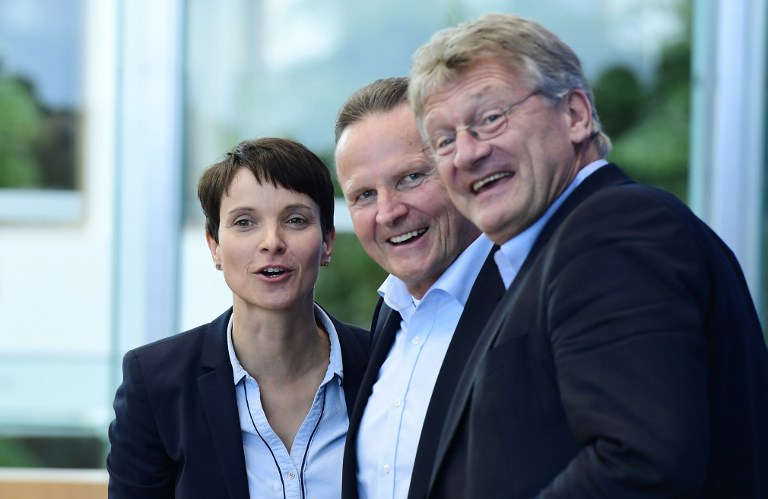-
Tips for becoming a good boxer - November 6, 2020
-
7 expert tips for making your hens night a memorable one - November 6, 2020
-
5 reasons to host your Christmas party on a cruise boat - November 6, 2020
-
What to do when you’re charged with a crime - November 6, 2020
-
Should you get one or multiple dogs? Here’s all you need to know - November 3, 2020
-
A Guide: How to Build Your Very Own Magic Mirror - February 14, 2019
-
Our Top Inspirational Baseball Stars - November 24, 2018
-
Five Tech Tools That Will Help You Turn Your Blog into a Business - November 24, 2018
-
How to Indulge on Vacation without Expanding Your Waist - November 9, 2018
-
5 Strategies for Businesses to Appeal to Today’s Increasingly Mobile-Crazed Customers - November 9, 2018
Merkel Defiant on Her Open Immigration Policies Despite Election Losses
Added to the 22 percent won by the Social Democrats, the traditional mainstream foes of the Christian Democrats, that outcome likely assures a left-leaning coalition government that will continue to support Merkel’s refugee policy.
Advertisement
Dr Merkel said she would turn back time if she could to be better prepared for the influx of around one million migrants who flooded into Germany previous year, adding that if she knew how people wanted her to change her migrant policy, she would consider it.
“I take responsibility as party leader and chancellor”, Merkel said at a news conference alongside her party’s mayoral candidate, Frank Henkel.
“That’s very bitter”, Merkel told reporters in Berlin, referring to the drop of nearly 6 percentage points her party suffered. The CDU only won 17.6 percent of the total vote – eliminating them from a governing coalition of the state of Berlin.
“There is no question, we didn’t get a good result in Berlin today”, said Michael Grosse-Broemer, a senior CDU politician.
Speaking in unusually self-critical terms, Merkel edged away from her oft-repeated mantra – first uttered during the height of the migrants crisis previous year – that “we will manage”.
“If those who demand change mean that they do not want foreigners, in particular Muslim people, their demand is in contradiction with our constitution, global legal obligations, but especially in contradiction with the ethical foundations of the CDU, and my personal convictions”, she said.
“I am the party leader, I do not shirk my responsibility”. Merkel acknowledged that her “We can do it” rallying cry during the refugee crisis had become a provocation to many who felt it expressed a glibness about the challenges ahead and said she would now refrain from using it.
Germany’s right wing anti-immigration party, the Alternative for Germany (also referred to by the German acronymn AfD), was a beneficiary of this shifting support.
She cited recent opinion polls predicting the party could receive 14 to 15 percent at the national level.
AfD, which has campaigned heavily on the refugee issue, managed to garner 12.2 percent of the vote and will enter its tenth regional assembly of the country’s 16 states.
She faces a general election next year. Berlin is now the 10 state where AfD has earned representation at the local level.
“We weren’t exactly the world champions in integration before the refugee influx”, she wryly admitted, noting that the infrastructure for getting newcomers into language and job training had to be ramped up overnight.
Advertisement
However, Angela Merkel expressed her unwillingness to place limits on the number of asylum seekers the country accepts, adding that Germany would step up efforts to reduce the number of migrants.





























